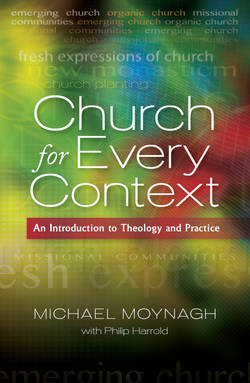Читать книгу Church for Every Context - Michael Moynagh - Страница 92
На сайте Литреса книга снята с продажи.
A problem of demand or supply?
ОглавлениеThe secularization argument rests on the idea that the demand for religion declines as societies modernize. But might the falling demand for religion be due to deficiencies in what the church offers – not shortcomings in the Christian story, but in how the church embodies the story? Has the church lost its appeal because it has failed to adapt to people’s changing needs and concerns? By implication, if the church did adapt, might the decline be reversed?
The debate about ‘fuzzy fidelity’ may point in this direction. Voas has found that across Europe, as religious practice declines individuals retain a casual loyalty to religion – what he calls ‘fuzzy fidelity’ (Voas, 2009). But religion plays only a minor part in their lives. The pattern is for people to withdraw from church, which leads to an increase in ‘fuzzy fidelity’, but ‘fuzzy fidelity’ then falls over a lengthy period. Individuals become steadily more detached from their religious roots.
Grace Davie is more hesitant – ‘the role of the churches in western Europe has, in fact, been written off far too soon’ (Davie, 2001, p. 101). The church has the tacit support of considerably more people than those who attend regularly. These supporters continue to identify with the church to some extent, they want it to enact the faith on their behalf (what Davie calls ‘vicarious religion’), they turn to the church when in need (especially at times of death) and they continue to believe important aspects of the Christian faith, even though they do not actively belong to church.
Unlike Voas who believes that the number of these Christian supporters will inevitably fall, Davie thinks that the decline is not predetermined. Much depends on how the church responds. There is a sizeable constituency of people with some allegiance to the church. They might be prepared to attend more regularly if the church related to them more effectively. Davie (2007, p. 252) notes how in Britain both professional football and cinema attendance declined towards the end of the twentieth century, but then recovered – although patterns changed – as clubs and cinemas found better ways of serving their constituencies.
Similarly, might the church learn to serve people more effectively? It has not always adapted in the past, but at times it has. The Methodist revival in eighteenth-century England allowed ordinary people to ‘find and live by their own spiritual style’ (Taylor, 2007, p. 455). The Baptists did the same in the rural US and the Pentecostals have done likewise in the global South. Alienated from the formal religion of elites, popular groups have found their voices through more resonant expressions of faith.
